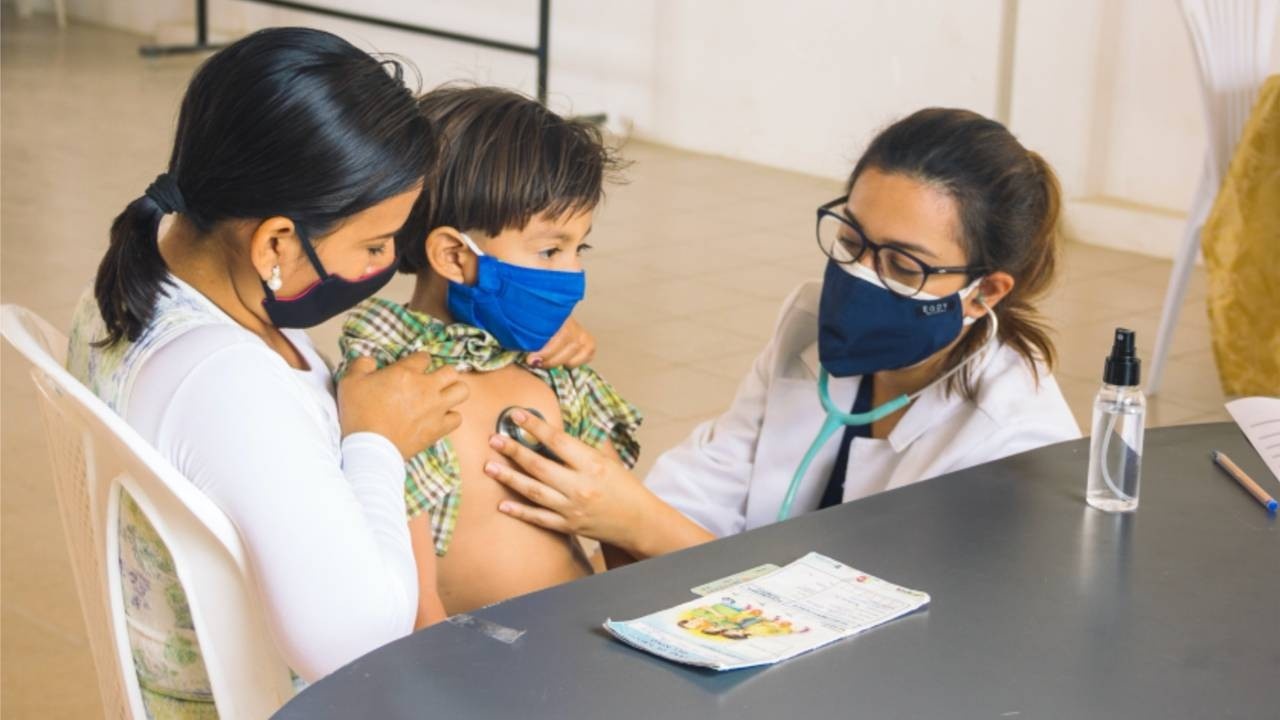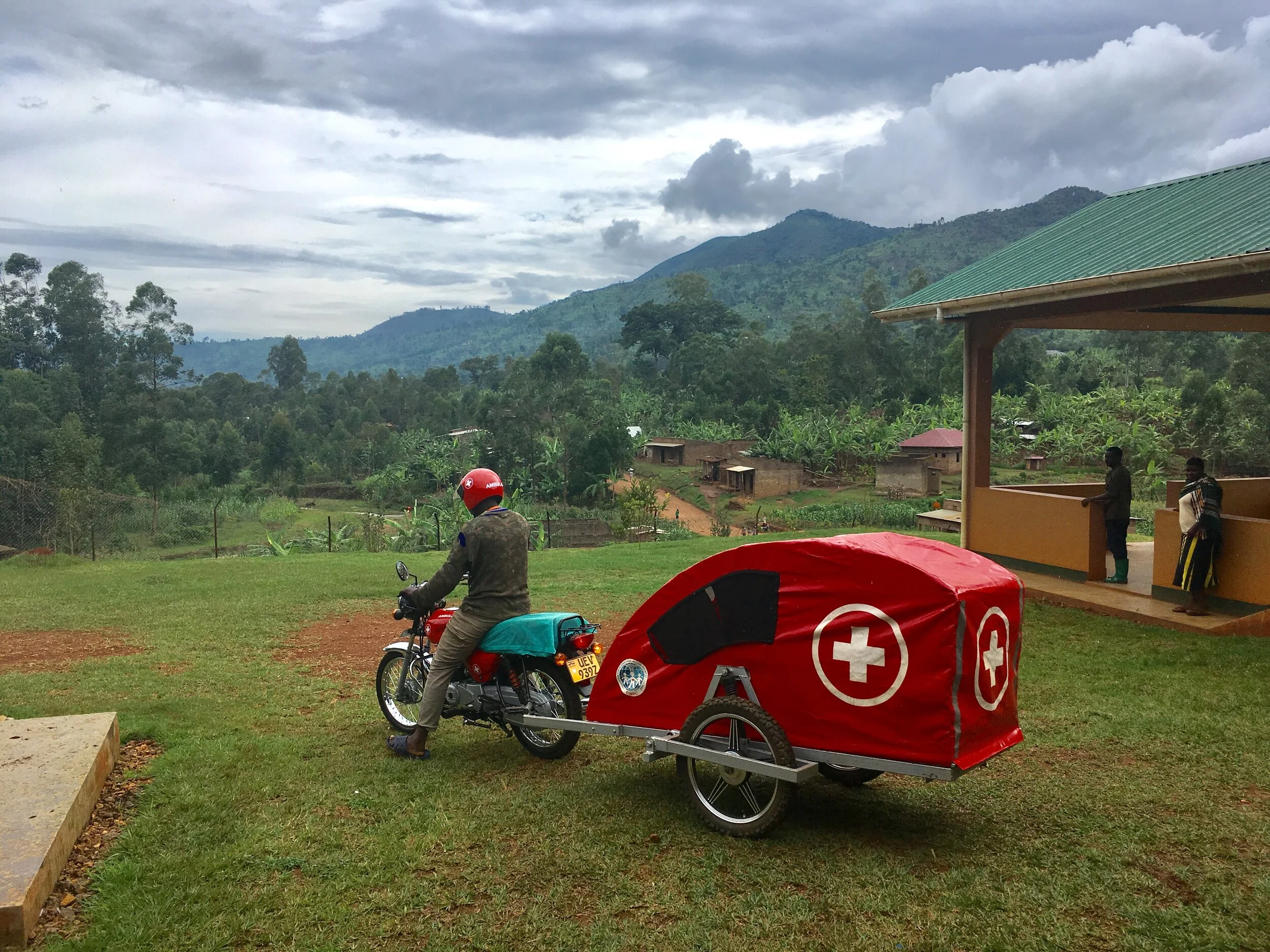
World Health Day
Apr 07, 2021World Health Day
World Health Day is celebrated each year on April 7th, a day of celebration to commemorate the First Health Assembly held back in 1948. World Health Day is aimed to create awareness surrounding prevalent health themes and highlights priority areas of concern for the World Health Organization. This year's theme is "Building A Fairer, Healthier World." As a global nonprofit providing healthcare to medically underserved communities worldwide, FIMRC's mission aligns with this theme each and every day.
With the rapid growth of healthcare and healthcare technologies, many countries, especially those in underdeveloped or rural areas, are left behind when receiving adequate care. This year's health campaign is centered on the belief that healthcare and access to healthcare are fundamental human rights and should not be determined by a person's race, religion, political belief, economic, or social condition.

FIMRC Celebrates Health Day Every Day
The Foundation for International Medical Relief of Children (FIMRC) is a nonprofit organization with a mission to provide sustainable healthcare and education to communities in need. FIMRC conducts operations at 10 project sites around the world, including Africa, Asia, the Caribbean, Central America, and South America. "Much of the reason why we founded FIMRC was to bring healthcare to areas of the world that didn't have it, or had a limited amount of it," explained FIMRC founder Dr. Vikram “Vik” Bakhru. "We wanted to bring access to the people who needed it most. FIMRC's efforts are rooted in building trust in the community and the act of being there for people when they need you."
In support of this mission, FIMRC focuses on three pillars; access, education, and participation.
Access: We work to ensure that the communities we serve have the ability to seek a healthcare professional. If no infrastructure is present, we build it.
Education: We collaborate with partners, governments, and community members to build health education programs tailored to prevalent needs.
Participation: We engage with communities, volunteers, donors, and partners to make improving health from the ground up a reality.

FIMRC's primary goal is sustainability. Sustainable health care enhances the overall wellness of our communities even after we're gone. By providing care and health education, we help our community members stay healthy in the long-term by teaching them long-term solutions and introducing tools they can use in their daily lives. Most of our on-site staff are from the countries where our project sites are located, and they lead a variety of programs for communities to learn from while working closely with families. Our staff works to understand each community's challenges and needs and build programs around the current health situation. With this, FIMRC conducts clinical activities, health education, and special initiatives for each project site, so community members are supported and cared for. "FIMRC has a role in balancing inequalities with solutions that remove them," explained Vik. "The role is to fill the gaps. FIMRC tries to insert itself in a way that allows us to deliver care to communities in need and instill trust."

FIMRC Volunteers Make Healthcare Possible
Because our clinics continue to operate year-round, we rely on our supporters and our volunteers to ensure we can maintain consistent, quality clinic operations at every FIMRC site, regardless of volunteer capacity. Our valuable volunteers make our mission possible, and without their dedication and support to global health, our communities would not be able to receive the care they deserve. Due to the COVID-19 pandemic, on-site operations have continued without volunteers' hands-on assistance, something that FIMRC has had to adjust to. In addition, COVID-19 has highlighted the wide variety of inequalities in global healthcare, and FIMRC has worked diligently to help the communities that are less likely to have access to healthcare services. "In terms of what FIMRC has done, one of the best things I believe we've done is not send our volunteers to these countries during COVID," Vik explained. "Introducing people into those communities is the wrong decision. We have kept our communities as safe as possible and kept our local resources in place to serve them as best we can during these times."
While international travel remains on hold, FIMRC has moved volunteer operations to the virtual space. We have provided three Virtual Volunteer Programs for those interested in global health. Each program will provide case studies on prevalent health issues, educate volunteers on the individual challenges each community faces, connect with our on-site staff as they conduct daily operations, and invites you to learn about our project sites from a remote setting. To learn more about volunteering with FIMRC, visit www.fimrc.org/volunteer

Building A Fairer, Healthier World For All
According to the World Health Organization, at least half of the world's population is without access to essential health services. FIMRC strives to bridge the gap. "Healthcare is absolutely a fundamental human right," said Vik. "We cannot as a global society withhold the tools to improve health from those who most need it. When I say those who most need it, I don't mean the individuals who can't afford it. I mean those who are sick regardless of race, ethnicity, socioeconomic status, etc. We must find ways to efficiently distribute our technologies to those in need. Let's stop building tools and resources, and let's start building solutions."
As we continue to raise awareness surrounding global health and healthcare equality, we hope to see more communities pulling together to make a change. Aside from the COVID-19 pandemic, the overarching problem that our world currently faces is health equity. According to Vik, "I imagine that moving forward, our global society is more committed to solving these inequalities. When you have a moment to lift your head, you see people pulling together to provide care, you see people pulling together to make these services more accessible, and you see policies changing right in front of you." Vik continues, "We have to find a way to make healthcare more equitable, and the distribution of these resources more available around the world."
Learn More:
Over the past 50 years, World Health Day has shed light upon essential health issues, including mental health, maternal health, and child care, and even health correlated to climate change. Today, we celebrate the growth in modern healthcare and strive toward a world where access to healthcare is available to all. To learn more about World Health Day and its initiatives, visit www.who.int/campaigns/world-health-day
To learn more about FIMRC and our fight for health equity, visit www.fimrc.org
Want your questions on volunteering abroad answered quicker? Book a quick call with our team!
Stay connected with news and updates!
Join our mailing list to receive the latest news and updates from our team.
Don't worry, your information will not be shared.
We hate SPAM. We will never sell your information, for any reason.

